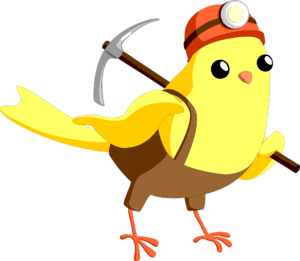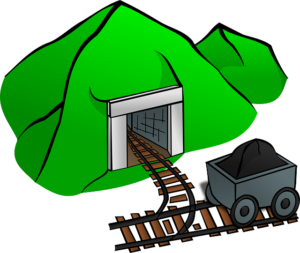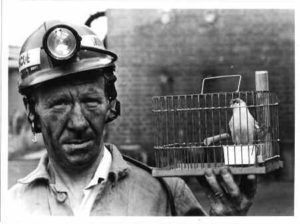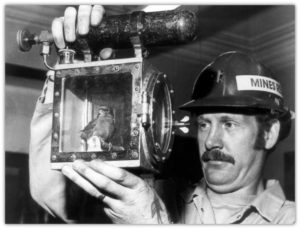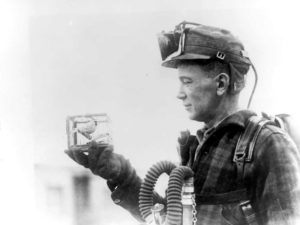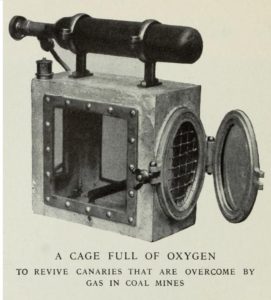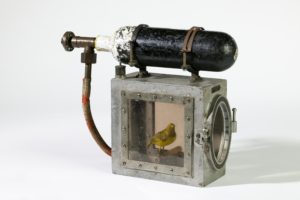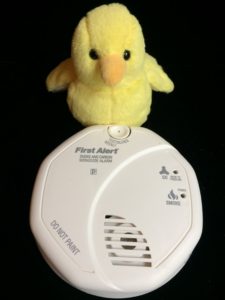Canaries & CO
You’ve probably seen a canary before…
Maybe you’ve even heard one singing…
But did you know, a long time ago these tiny birds had a BIG job to do? They worked a long way down underground in coal mines, and their job was to stand watch over the air. They had to alert the men working in the mine (miners) right away if dangerous CARBON MONOXIDE gas invaded their air space.
Carbon monoxide (CO for short) is invisible, and you can’t smell it or taste it. It can sneak into the air without you even knowing! CO is poisonous and can make us very sick if we breathe it in. We need to know as soon as possible when it’s in the air so we can hurry and get outside to fresh air!
Today, we have CO alarms to alert us to CO in the air. But before there were CO alarms, miners relied on canaries to help keep them safe. Every day they took canaries with them to work. And at night they took them home. Many miners were very attached to their canaries and treated them as pets ❤️.
Can you imagine relying on a little bird to make sure your air was safe all the way down inside of a mine? It was dangerous work for both the canaries and the miners. The miners had to keep a close watch on the canaries for any warning signs of trouble with the air.
If CO invaded the air, the canary would stop singing; it might even fall off its perch. Luckily there were special rescue cages like this one that had an oxygen cylinder attached. The cage could be closed up with the canary inside, and the oxygen from the cylinder would revive the canary and keep it safe while both the miner and the canary escaped outside to fresh air.
Thankfully, the days of using canaries as CO alarms are over. However, dangerous carbon monoxide is still around and can invade our air when we least expect it. Remember, we have no way of knowing it’s there, so we need CO alarms to alert us if it gets into our air.
Here are 3 ways to stay safe at home from CO:
-
Have CO alarms on every level of your home, especially in or near bedrooms. It’s important to be able to hear the alarm if it goes off while you are sleeping (ask your parents where the alarms are in your home).
-
Know what your alarms sound like when they are alerting to CO (if you don’t know, ask your parents to help you find out).
-
Know what to do if you hear the alarm alerting to CO: hurry and get outside to fresh air, then call 911! Firefighters will come and make sure the CO gets out of your home, and they will help find out how it got in. They will tell you when it’s safe to go back inside.
Photo credit: Pixabay, Museum of Cannock Chase (UK), U.S. Bureau of Mines, Science & Industry Museum (UK)



